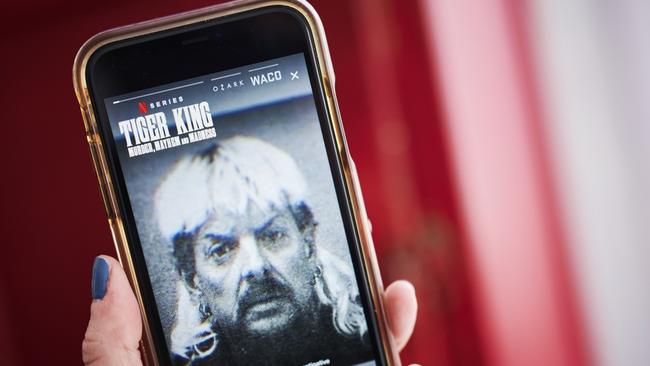Suited and rebooted, Netflix wins back viewers
The streaming platform has turned old content such as the Meghan Markle series Suits into TV gold, leaving rivals in the dust.

Bob Iger, Disney’s 72-year-old chief executive, had an epiphany some years ago about how he had unwittingly turned Netflix into his biggest rival. “We were the first studio to license movies to Netflix,” Iger said last year. “I woke up one day and thought, we’re basically selling nuclear weapons technology to a Third World country. And now they’re using it against us.”
Indeed, taking hundreds of millions of dollars from the former DVD-by-post upstart in exchange for the rights to stream some of Disney’s top titles was a nice bit of short-term business. But those films lured in millions of subscribers, which in turn funded the creation of a $US200bn ($300bn) behemoth that has become the most prolific production studio on the planet.
Iger, having realised his error, belatedly did a U-turn. He slashed the licensing deals and shovelled Disney’s trove of films and shows into Disney+, which he launched in 2019 to compete with Netflix. He would arm the rebels no more.
Netflix has unveiled detailed viewing figures for the first time. The data on more than 18,000 titles offered through its service showed that during the first six months of this year, its then 239 million subscribers (it now has 247 million) notched up 93 billion hours of viewing time, or about 15 hours a week per person.
This comfortably beat the likes of YouTube (where people spend an average of five and a half hours) and TikTok (seven hours).
It also showed early glimpses of what became the summer of Suits. The legal drama starring Meghan Markle — her last acting job before joining the royal family — stopped production four years ago. Yet for 12 weeks starting in late June — the final month covered by Netflix’s data dump — the series was viewed for more than a billion hours, said Nielsen, the rating agency.
Netflix’s ability to revive a moribund series — it ran on UK channel Dave for five years after being dropped in 2017 — and turn it into a global phenomenon stunned Hollywood. And it illuminates why Disney’s boss Iger made a decision that, given his past comments, was surprising.
Days after Netflix published those figures, it emerged that Iger had entered advanced discussions to license 14 popular television series to Netflix, ranging from Lost to How I Met Your Mother.
However, in a conference call with investors, Iger made it clear that this time he would not be handing over the crown jewels, such as the Star Wars franchise, to Netflix. Those are to be the core of a new Disney+ super-app, planned for launch next year, that will incorporate ESPN, its sports broadcaster, and streamer Hulu.
So Iger may not be selling nukes to Netflix, but he does seem perfectly willing to sell small arms to his rival. That speaks to how Netflix has shifted the ground under Hollywood. Suits, a series about fast-talking New York lawyers, was on other services, including Amazon Prime and Peacock — NBCUniversal’s streaming app, for years. And yet, it blew up only once Netflix got hold of it. Why?
The “front page” of Netflix is different for every user thanks to hyper-personalisation that no other streamer can match. Netflix gathers an astonishing amount of data: from the type of device you use to your public social media posts, transcripts of chats with customer service, your location, the websites you visit and your past viewing and search history. It also pulls in data from mobile carriers, TV providers and agencies who track your interests and analyse which ads led to a purchase.
The result is algorithmic alchemy — an array of shows and trailers suggested just for you when you open the app.
This makes Netflix a powerful machine and while that machine hums, the rest of the industry is sputtering. When Disney+ launched in 2019, it was the splashiest entrant into “the streaming wars”. Broadcasters and studios ploughed tens of billions of dollars into films and series to stuff the carousels of their rival streaming apps. Disney did the best of the lot — and it performed terribly.
Since it launched, Disney+ has piled up more than $US11bn in losses. Iger has slashed spending, cancelled shows and increased prices this year in an attempt to bring the business into the black. NBCUniversal’s Peacock has lost $US2.8 billion this year and has just 30 million subscribers. Warner Bros Discovery, owner of HBO and CNN, has cancelled shows.
Analysts expect that most streamers will slowly disappear via mergers of survival. The streaming wars are over. Netflix won.


